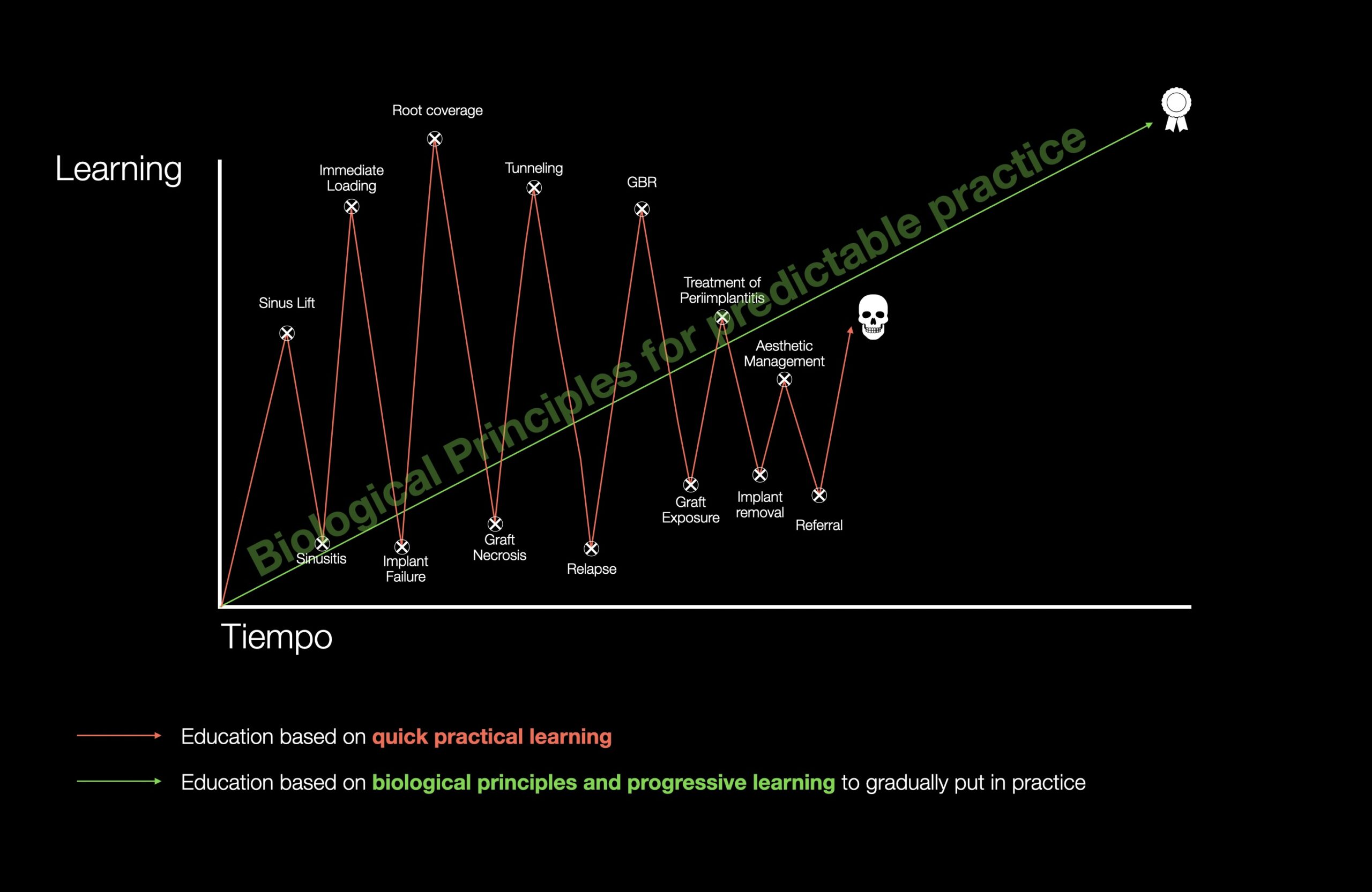The Importance of Solid and Ethical Training in Dental Implantology
In the current panorama of dental implantology, worrying trends are emerging that demand a deep reflection on the quality of training and professional practices. These aspects not only compromise the predictability of treatments, but also put at risk the health of patients and the credibility of our profession.
1. Superficial Training: A Risk for Students and Patients
Today, many young dentists are introduced to clinical practice with a disproportionate focus on practical cases, leaving aside solid theoretical training. In some centers, students are quickly exposed to complex procedures without an adequate biological basis. It is like teaching someone to fly an airplane by showing them only the basic controls, without explaining the laws of aerodynamics or how to deal with critical situations in the air.
The lack of understanding of biological rules and sound clinical criteria creates a cycle of uncertainty and risks:
- For the student, who faces scenarios that exceed his or her capabilities, generating stress and increasing the probability of errors.
- For the patient, whose health is compromised by treatments performed without the necessary knowledge to guarantee safety and long-term success.
Solid training must prioritize biological language and the theoretical bases that allow understanding the interaction between tissues and implants. This approach is the key to achieving predictable treatments and avoiding complications that could have been prevented with better education.
2. The Influence of the Industry on Clinical Criteria
Another alarming problem is how the implantology industry has absorbed and displaced conservative periodontal criteria. This, together with the inexperience of some clinicians, has led to the normalization of aggressive decisions, such as the massive extraction of teeth that could have been preserved with conservative treatments.
It has become common practice to opt for dental implants and All-on-X prostheses as a definitive solution, even in cases where the teeth could have been maintained with a favorable long-term prognosis. This trend is worrying because:
- It prioritizes the economic benefit of the industry (implant manufacturers, guided surgery systems, radiology) over the well-being of the patient.
- It generates long-term problems, such as peri-implantitis, a frequent complication derived from poor planning or incorrect placement.
The aggressive approach of replacing teeth with implants must be evaluated from an ethical and clinical perspective. It is not about replacing what can be preserved, but about applying a comprehensive approach that combines the advantages of conservative periodontics with modern implantology when necessary and justified.
Final conclusion
Implantology should not be seen as a shortcut or a quick fix, but as a discipline that requires knowledge, responsibility and respect for biological principles. Adequate training and well-founded clinical judgment are essential to ensure that treatments are safe, effective and predictable, always prioritizing the patient’s well-being over any external interest.

